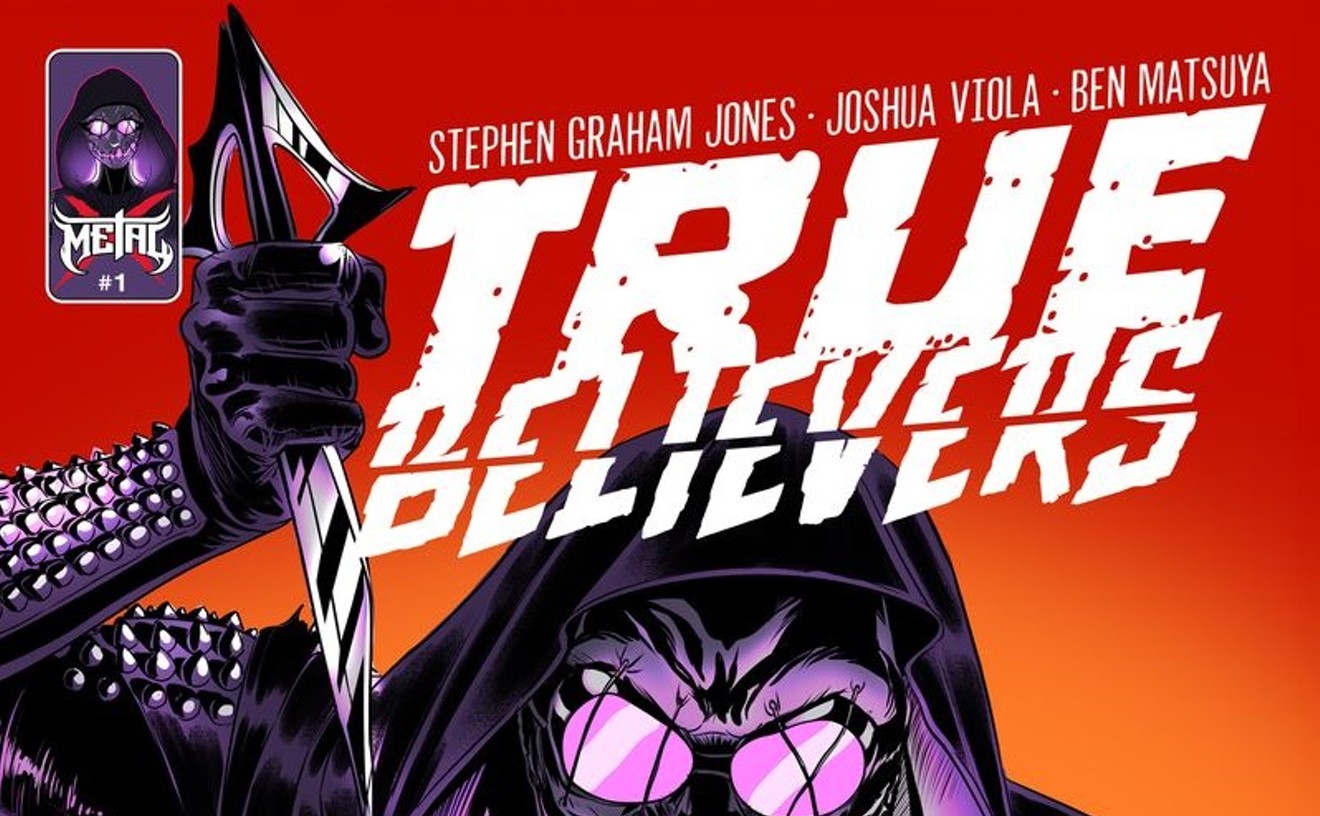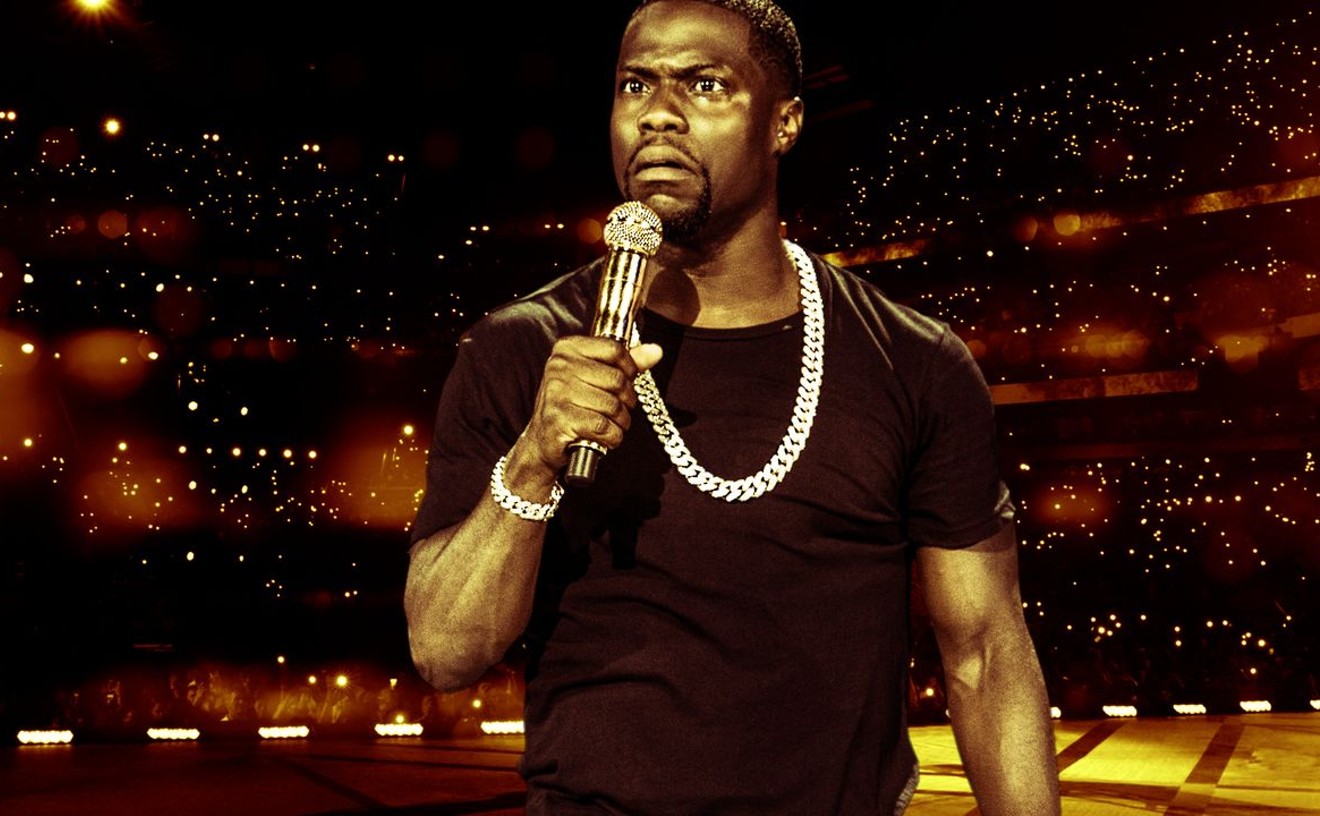Westword: I remember reading about the whole DNA debacle and wondering if we were ever going to get to read your book after all that. What were the next steps for you in telling the story after the DNA test was proven to be a false-positive?
David Roberts: It was such a roller coaster. It just blew my mind that the DNA experts at CU had come up with perfect match in the first place. Against even my own doubts I thought, "My god, it really is Everett!" Then when the second test contradicted those results and we learned it wasn't Everett after all, it was just an incredible letdown. I thought, "Well, do I still have a book?" and went to have a heart-to-heart talk with my agent and publisher about it. But by that point I'd gotten so interested in Everett's life, and I realized that there was so much that Will Rusho had not covered in A Vagabond for Beauty, that I was able to convince the publishing house that instead of making the supposed discovery of his body the centerpiece of the book it could become a kind of last chapter about the mystery of the whole thing. This is really the first true biography of Everett and -- like his life -- it turns out not to have a tidy ending.
Why were you so drawn to this character? Can you put him into some context for me?Well, you've got to remember he was only twenty when he vanished, and while his writing can seemed a bit over-dramatic at times, and young and idealistic and even grandiloquent, there's also a lot of power to it. The sheer celebration of the beauty of the wilderness comes across no matter how effusively he expresses it, and then there's also his block prints, which are quite accomplished works of art and serve as wonderful examples of his vision of the wilderness. We've used the block prints as chapter headers in my book. To me the most impressive thing about Everett is the journeys themselves. I mean, you think of this kid doing a ten-month journey, mostly solo, through an American Southwest that was far wilder and more dangerous in the 1930s than it is today, and without a lot of the equipment and technology that we'd take for granted on a trip like that today... I've hiked much of that same country, and it's still a lot of deep wilderness, and I'm impressed by his doing that for so long without losing heart or getting scared or getting terribly homesick or bagging it all and giving it up, especially since so much of it was solo. It takes a rather intriguing person to set out on such a journey in the first place.
Aron Ralston's Between A Rock and Hard Place was a bestseller, and 127 Hours was one of the biggest movies of the year last year. And then, of course, there were Christopher McCandless' Into the Wild misadventures. Since we've been so drawn to these kinds of stories about these guys going out there and living on the edge, with all its potential pitfalls, can you put Everett Reuss into some context for me?Aron gave me a really nice back-cover blurb for the book, and I think he saw a direct parallel between Everett and himself. I think, unlike both Aron Ralston and Chris McCandless, Everett was willing to die. He kept saying, "I've flirted with death, the old clown... I've many times climbed on the very edge of falling to my death." There's this streak in his writing of anticipating an early death or a vanishing of some kind, this theme of, "I shall not return." And he never did return, in the end. He was willing to die for his pursuit of beauty, and though he may have been reckless -- in Vagabond for Beauty Clay Lockett describes him as standing on the very edge of a cliff as he paints in a rainstorm -- he wasn't unaware of the fact that he could very well die doing what he was doing. Aron, by contrast, was on a day trip and just made this silly little screwup, by his own admission, where he grabbed a chuckstone in the canyon and it pivoted under him. But, as anyone familiar with that story knows well, once the reality set in, his will to live and his refusal to die kicked into overdrive. Of course, if he'd just left a note about where he was, they might have gotten to him within 24 hours instead of him having to cut off his own arm to save himself! Chris McCandless never thought he was going to die, either: He made a basic error in not finding the wire bucket ferry across the river that could have saved him, but he certainly didn't set out for Alaska prepared to die. Whatever happened to Everett in the end, he was fully willing to countenance the possibility of dying while he was doing it. And that fact doesn't seem to have given him more than a moment's pause.
There have been these briefly entertained theories that Everett went and lived happily ever after somewhere with a Navajo woman, but you seem to be of the opinion that his story ended more darkly than that.
I don't think he "went native," as some people have suggested, and married a Navajo woman. I think we can dismiss that theory, but I truly don't know where I stand now. Ten years ago, I thought I had pretty strong evidence that he'd been killed by cattle rustlers, but now I also think it's possible that he died by accident, either trying to cross the Colorado River or falling off a cliff somewhere, and we just haven't found his remains yet, or they may have been strewn by predators and scavengers and lost for all time. I also pretty much discount the idea that he committed suicide. I don't think that's at all likely, given what we know about him.
For your event In Boulder, I imagine you'll have quite an audience of people who identify with certain aspects of Everett's character.I'm always interested in why Everett appeals to other people. There is, after all, a certain backlash against characters like Everett, and you'll find people who say, "This kid was an idiot," just as people say Christopher McCandless was an idiot. In fact, that's the going theory up in Alaska, where people will say, "Why celebrate this hippie who fucked up? Any of us could have survived where he didn't. He couldn't tell a moose from a cow." But I'm fascinated when people say to me, "There's something about Everett that resonates with me," because for all his youthfulness and naivete, I can also embrace his vision and his enthusiasm. I have the same problem with Chris McCandless: Jon Krakauer is one of my very best friends, and when Jon was writing Into the Wild I said to him, "I'm not sure I really like Chris McCandless. I find him kind of arrogant and egocentric and grandiose and entitled." And there are people who say the same about Everett: In the book I hint at the sides of Everett that are less likeable: the sense of entitlement, that fact that he kept accepting handouts from his parents, refusing to work or go to college, while poor Waldo Ruess is struggling with lousy jobs to make ends meet in the Depression. But even so, there's something about this endless and passionate pursuit of beauty and solitude that resonates for me and for so many other people. I think that's why there's almost like a cult of reverence about this kid. There weren't very many people like him in his time, and there still aren't.
Tell me about your title, Finding Everett Ruess, given that we still don't really know what became of him.
In the end I think it's not a tragedy that we haven't found the real Everett Ruess, and I'm not just talking about his remains: The mystery of his vanishing and demise, and the mystery of what made him tick, is unsolved and still very intriguing. I haven't figured the kid out yet, and I've spent an awful lot of time thinking about him. He's a much more complex character than I initially thought he was when I started writing about him. He turns out to have been a pretty interesting kid, and somebody who was trying very hard to figure himself out, which you can't say about many twenty-year-olds. It was a noble quest in some ways, and maybe it's appropriate that nobody knows how it ended.










